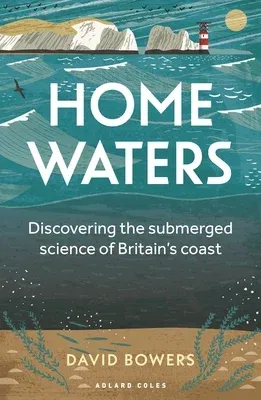A fascinating and original look at how the sea has defined Britain -
and decided the course of its history - for thousands of years.
Being an island nation is a core part of the British identity. An
estimated two thirds of the world's population have never seen the sea,
but in the UK that drops to under 10 per cent. Yet most people don't
appreciate the impact our position on the edge of a continental shelf
has had on our history, going back thousands of years.
Our coast neither starts nor ends at the beach, and this eye-opening
book takes a look beneath the surface to explore the forces of nature
that have made Britain what it is. We experience some of the highest
tides on the planet and we are battered with waves that have travelled
halfway around the globe before they get here, but most of what we
understand about our unique waters has only been discovered in living
memory.
In this fascinating guided tour of the fantastically varied British
coastline, Professor David Bowers combines oceanography with maritime
history, explaining tides, currents and waves in an accessible way
whilst revealing how they have been responsible for both salvation (the
Channel alone checked the Nazi advance in 1940) and disaster (such as
the catastrophic 1953 flooding that led to the ingenious development of
the Thames tidal barrier). He covers everything from how ocean swell
waves were first recorded here in preparation for the D-Day landings, to
how the first underwater light measurements paved the way to modern
ocean satellite observation.
This is a story 8,000 years in the making, ever since the country broke
away from mainland Europe in the Mesolithic era, and in his insightful
and irreverent telling of it Professor Bowers shows that the British
Isles are defined by the sea, regardless of whether you look at them
from land or water. With exclusive photos and specially commissioned
illustrations, the book encourages you to visit all the places it
explores, but when you stand on the beach or clifftop you will never
think of Britain in quite the same way again.

